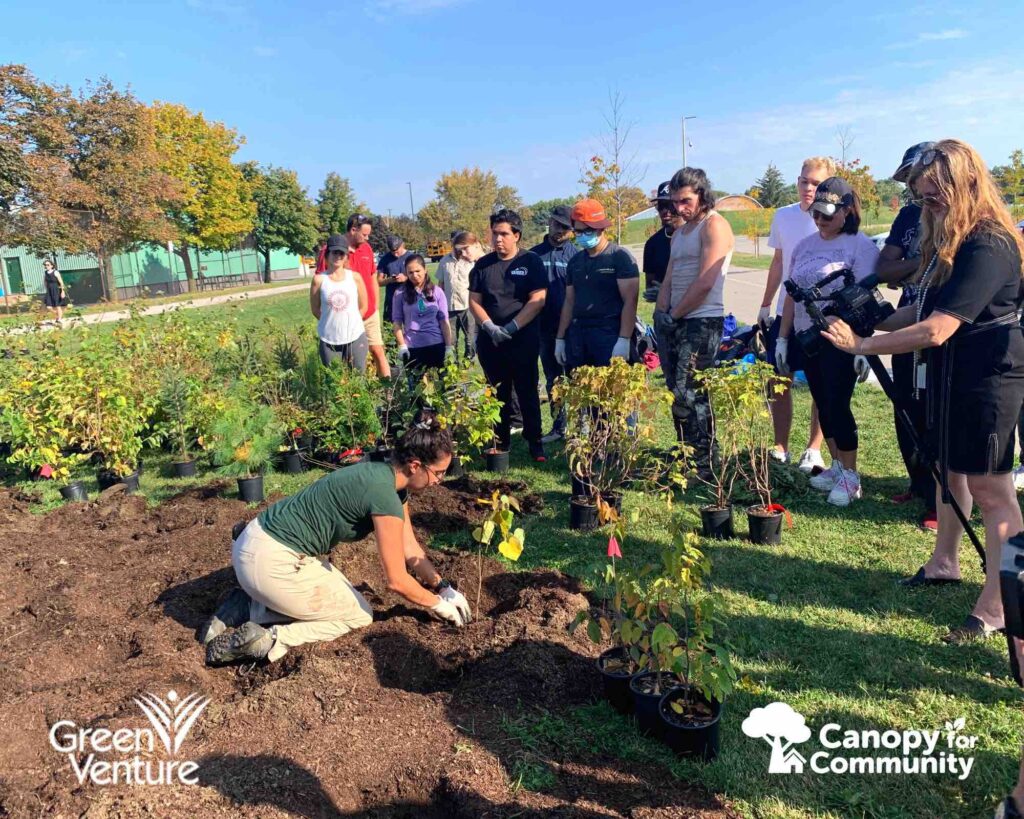The Greenbelt and other wins of 2023

We’ve come to the end of what may be one of the most significant years for the environment in Hamilton in a very long time.
At the end of August, I received an invitation to gather with some friends on the patio of the West Town on Locke Street. The celebration? The province had just announced it would be undoing its historically unpopular opening of the Greenbelt, and returning that land to protected status.
It was a great night of politicians, activists, organizers and people who love our planet coming together to savour a huge victory.
But it wasn’t the only win worth celebrating last year.
It’s the end of what may be one of the most significant years for the environment in Hamilton in a very long time, and with so much for us to be proud of, I thought I’d do a roundup of some of the highlights.
In no particular order:
Stormwater Management Fee
The good people at Environment Hamilton have been calling for this since at least 2006. Simply put, the cost of managing runoff from storms and rainfall is paid largely by residents on their water bill. These costs include keeping nasty stuff out of our harbour and Cootes Paradise and maintaining the infrastructure underground that carries it away from our roads.
The problem is, it’s not residents that are responsible for most of the runoff, it’s businesses, especially businesses with big parking lots, like malls and big-box stores.
Finally, we are getting a fee structure where landlords and property owners will be assessed based on how much non-permeable surface, like parking lots, they have. That determines how much water they send into the storm sewers every time it rains.
It’s a huge win for our city and will guarantee a fair way of paying for our storm sewer system for generations to come.
Office of Climate Change Initiatives
OK, it was technically Dec. 12 of last year, but now we’ve had a full year of long-time Environment Hamilton executive director Lynda Lukasik in office as the director of the City of Hamilton’s Office of Climate Change Initiatives. While she and her amazing team are just getting going, they have already announced the launch of a residential energy retrofit plan and recruited for a climate change advisory committee. We know lots more good things are to come, as she chips away at the climate change strategy that was approved in 2022.
Stop Sprawl

The tireless team at Stop Sprawl HamOnt did just that. Stopped sprawl in its tracks. After convincing council to vote to retain the current urban boundary in 2021, they were major contributors to the province’s decisions to backtrack on both the Greenbelt land grab and the forced urban boundary expansion for Hamilton this year.
I don’t know if it was the letter, phone call and email campaigns, the weekly demonstrations, or their constant presence in the media, but somebody certainly paid attention.
They even helped convince council to stand fast on the urban boundary decision when the province pushed the decision back to council to get them to approve it voluntarily.
At the beginning of November, councillors voted unanimously to stand their ground, protecting hundreds of acres of priceless, irreplaceable Class A farmland and natural spaces around our city.
It’s no wonder Stop Sprawl HamOnt was awarded the Dr. Victor Cecilioni Environmentalist of the Year award in a ceremony in October.

Greening Our City
The unsung heroes at Green Venture have also been very busy this year, greening our city with several de-paving projects in the past year.
What is de-paving? It’s taking asphalt or pavement, digging it up, and replacing it with plants and trees – preferably native ones – to encourage biodiversity, clean the air and reduce heat on the nearby sidewalk.
De-paving projects that were started last year include three locations along Barton Street, not the least of which is in front of the Barton Street library. Green Venture is also forming a group committed to maintaining these sites on a long-term basis.
On top of that, Green Venture has overseen the planting of three new micro – or Miyawaki – forests at locations around the city, for a total of 21. These mini-forests have a very high density of trees per square metre and grow quickly to create small biodiversity hotspots. Threatened and endangered species of native insects use these to hopscotch from forest to backyard to green space in search of habitat and food.

Green Venture also partnered with schools and homeowners to plant another six mini-forests on private property.
A few months ago, the latest report of the Intergovernmental Panel on Climate Change came out with a blunt assessment of the effectiveness of our efforts to prevent global heating. It wasn’t good.
But as I explained to my oldest at the time: when faced with complex problems like climate change, democracies tend to do nothing, then nothing, then nothing, then more nothing, then everything all at once. The past year or two in our fair city feels like suddenly a whole bunch of people rolled up their sleeves Hamilton-style and got to work.
We hear so much about what is going badly with our efforts to prevent global heating and preserve natural spaces that it is important to take a step back occasionally and reflect on and celebrate our successes. All the better to do so in a year when the successes were so great in number.
What does 2024 hold? I know I’m looking forward to finding out.






